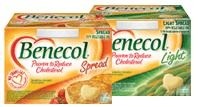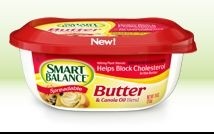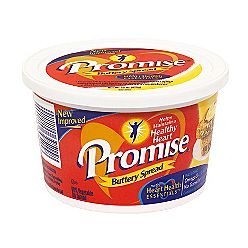You say stanol, I say sterol… Raisio clashes with Unilever over cholesterol-lowering terminology

In a proposed rule published in December 2010, the Food and Drug Administration (FDA) suggests several changes to the rules governing such claims, including that the term ‘phytosterols’ be adopted as “inclusive of both plant sterols and stanols”.
Unilever, which uses plant sterols in its Becel/Flora pro·activ range of heart-healthy spreads, supports the move on the grounds that there is “no meaningful difference” between the effectiveness of the two in lowering cholesterol and that one term would be simpler for consumers.
Raisio: Unilever’s take on use of term phytosterols is ‘scientifically unfounded’
However, Finnish food firm Raisio, which uses plant stanol esters in its Benecol cholesterol-lowering products, has just filed a lengthy “rebuttal” to Unilever’s arguments in the FDA docket on the proposed rule change.
It notes: “Unilever’s contention that the use of the single term ‘phytosterols’ to refer collectively to both plant stanols and plant sterols would reduce consumer confusion is scientifically unfounded.
“Indeed, in the European Union, the health claim regulation for plant stanol ester and plant sterols does not use ‘phytosterols’ to refer collectively to plant stanols and plant sterols. Rather, the identity of each class of compounds is retained and is required to be identified in claim wording.”
There are important differences between plant stanols and plant sterols
It adds: “The more generic term ‘phytosterols’ should not be used to describe the substance eligible for the claim. Instead, the terms ‘plant stanols’ or ‘plant sterols' or ‘plant stanols and plant sterols’ [should be used].”
This was because there were differences in the molecular structures and metabolism of plant stanols and plant sterols and because dose-dependent reductions in LDL-cholesterol were substantiated for plant stanols, but not for plant sterols, claimed Raisio.
Plant stanols are saturated plant sterols, it added. “This difference in molecular structure, however slight, results in notable differences in the metabolism of plant stanols and plant sterols. As an analogy, it would be incorrect to consider vegetable oils and their partially or fully hydrogenated counterparts collectively as ‘vegetable oils’.
The absorption rates of plant stanols were also much lower than those of the corresponding plant sterols, it said.
Unilever and FDA science is ‘out of date’
Meanwhile, Unilever’s contention that there is no useful difference between the effectiveness of the two in lowering cholesterol was “based on literature published in 2006 or earlier and is therefore outdated”, claimed Raisio.
Results from clinical studies published after 2006 showed that the efficacy of plant stanols in reducing LDL-cholesterol was in fact dose-dependent, and therefore consuming more than 2g/day could deliver additional reductions in LDL-cholesterol, it argued.
Greater reductions in LDL cholesterol are achievable if you consume more than 2g/day of plant stanols
“Raisio completely agrees with Unilever and with the FDA that plant stanols and plant sterols cause similar reductions in LDL-cholesterol at intakes of approximately 2 g/day. The real question is whether greater reductions in LDL-cholesterol are achievable with intakes of plant stanols or plant sterols in excess of 2 g/day.”
Therefore, the proposed claim wording for plant stanols should be amended to something along the lines of ‘diets low in saturated fat and cholesterol that include at least 2g per day of plant stanols…’ it said.
“There may be public health benefits if greater reductions in LDL-cholesterol, as achievable with plant stanol intakes in excess of 2g/day, are permitted to be communicated to consumers.”


![The US grocery market will remain 'difficult' for the forseeable future, predicts Unilever: "The overall market grew not more than 2% in value with negative volume [in Q1, 2012]."](/var/wrbm_gb_food_pharma/storage/images/_aliases/wrbm_medium/3/2/2/7/1607223-1-eng-GB/Unilever-Recovery-in-US-economy-is-mixed-and-slow.jpg)














